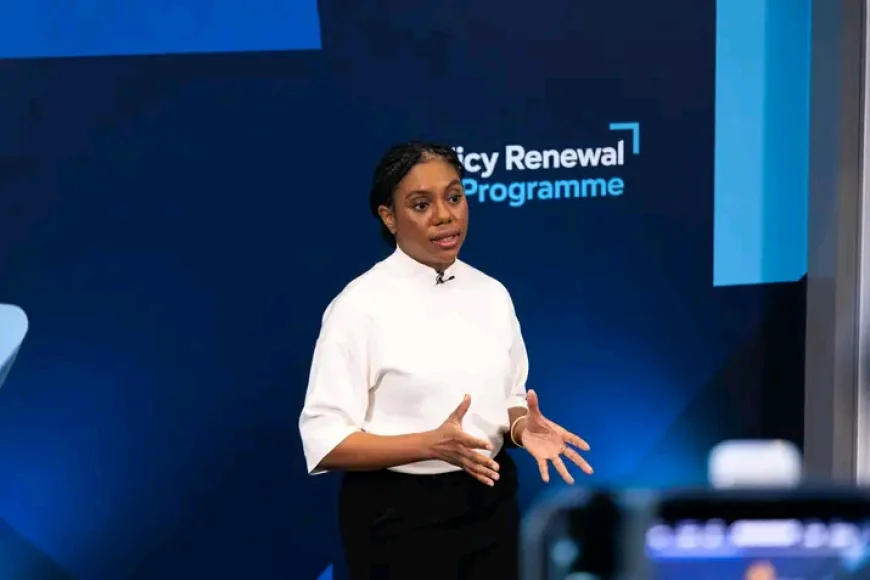Home is where my family is’ – Badenoch distances herself from nigerian identity
Kemi Badenoch Says She No Longer Identifies as Nigerian

British Conservative politician Kemi Badenoch has revealed that she no longer identifies as Nigerian and has not held a Nigerian passport for over two decades. Her comments, made during a recent podcast interview, have sparked widespread discussion around identity, belonging, and nationality.
Born in London in 1980 to Nigerian parents, Badenoch spent much of her childhood in Nigeria before returning to the UK at the age of 16. Despite her early years in Africa, she admitted to feeling a persistent sense of disconnection while living there.
"I never truly felt like I belonged," she said. "There was always something missing, a feeling that I was not entirely part of the society I was growing up in."
Badenoch is among the last individuals to have received British birthright citizenship before it was abolished under Prime Minister Margaret Thatcher’s government in 1981. Although her Nigerian heritage has often featured in public conversations about her political journey, she clarified that her sense of identity is now firmly rooted in the UK.
“I haven't held a Nigerian passport in over 20 years,” she stated. “For me, home is where my family is—my husband, children, brother, and in-laws. That’s where I feel I truly belong.”
Currently serving as Secretary of State for Business and Trade and often tipped as a potential future Conservative leader, Badenoch’s remarks offer a rare personal insight into her evolving relationship with heritage and identity.
Her comments have drawn mixed reactions online. Some praised her honesty and the right to self-identify, while others expressed disappointment, suggesting she was distancing herself from her African roots for political expediency.
Political analysts say the statement may resonate with Britons who have complex cultural backgrounds and have struggled with questions of dual identity.
“She’s tapping into a broader conversation around what it means to be British today,” said one commentator. “This isn’t about rejection—it’s about finding belonging in the present.”


